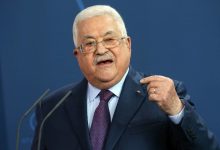Navigating Palestinian Leadership: Prospects and Challenges for the Next President

Watan-A Russian newspaper stated that the popularity of the Palestinian Authority President Mahmoud Abbas has significantly declined since the October 7th attack, ruling out his return to office in the event of presidential elections for several reasons. It also predicted the most popular figure who might assume the Palestinian presidency in the near future.
The newspaper “Izvestia” reported, authored by “Bukhor Dorinko,” that Palestinians are discussing the formation of a new national government involving all factions, including Hamas, in addition to holding upcoming presidential elections.
At the same time, it is evident that the leadership role will not be given to the current President of the Palestinian Authority, Mahmoud Abbas, whose support has decreased notably since the start of the war between Hamas and Israel.
The Most Popular Politician
The newspaper added that the most popular politician currently is Marwan Barghouti, who has been imprisoned for over 20 years. However, as Hamas told Izvestia, they are actively seeking his release as part of a prisoner exchange with the Israeli side.
Marwan Barghouti is considered a key figure in Fatah, often referred to as the “Palestinian Nelson Mandela.” He joined Fatah at the age of fifteen and was elected as its Secretary-General in 1994.
Mahmoud Abbas had previously requested that the occupation authorities keep Barghouti imprisoned because his release represents a threat to his position if freed.
Despite the dominance of the war in Gaza for over six months and the risk of escalation due to the Israeli Defense Forces’ attack on Rafah, many Palestinian movements have begun discussions not only about post-war conditions but also about the formation of a unified government.
However, achieving political unity requires reaching an agreement between Hamas, Islamic Jihad, based in Gaza, Fatah, and other forces within the Palestinian Liberation Organization that controls the Authority in the West Bank.
A Complex History
The source added that achieving this is difficult due to their complex history, as the conflict between Hamas and Fatah began immediately after the former’s victory in the parliamentary elections in 2006. A year later, a civil war erupted between these political forces, resulting in Hamas gaining complete control over the Gaza Strip.
To seize the opportunity to play on the strings of Palestinian disagreements over the Israelis, the head of Hamas’s political bureau, Ismail Haniyeh, recently spoke in favor of supporting the process of Palestinian national unity.
He added, “We are more interested than ever in the unity of the Palestinian people and restructuring it with all its political and administrative components. This process must be implemented in three stages: the first relates to the administrative level and reviewing the national guidelines within the Palestinian Liberation Organization through the elections of the Palestinian National Council – the highest body in the Palestinian Liberation Organization, which is supposed to represent the interests of Palestinians in exile, the West Bank, and the Gaza Strip.”
The Palestinian official added that the second stage would be agreeing to form a temporary national unity government with specific tasks until presidential and parliamentary elections are held.
As for the third stage, it involves reaching consensus on a common political program for the Palestinian people.
Technocratic Government
The Palestinians first aim to form a technocratic government that will not include Palestinian factions such as Fatah and Hamas, according to Palestinian expert Ayman al-Raqab in an interview with Izvestia. This body will be responsible for reorganizing all Palestinian institutions, implementing reforms, and preparing for general elections for the president and parliament.
Equally important is the potential selection of a new Palestinian president who can act as a unified link for Palestinians while being able to engage in dialogue with Israel.
According to recent opinion polls, three politicians have a chance to lead the Palestinians: Marwan Barghouti, Ismail Haniyeh, and the current permanent president of the Palestinian Authority, Mahmoud Abbas.






